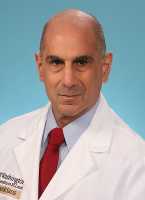
29 Dec Can New Heart Failure Patients Drink Alcohol?
MedicalResearch.com Interview with:

Dr. Brown
David L. Brown, MD, FACC
Professor of Medicine
Cardiovascular Division
Washington University School of Medicine
St. Louis, MO 63110
MedicalResearch.com: What is the background for this study? What are the main findings?
Response: The genesis of this study was a patient asking me if he could continue to have a nightly cocktail or two after he was hospitalized with the new diagnosis of heart failure.
The main findings are that moderate drinking after the diagnosis of heart failure in older adults is probably safe and is associated with longer survival. These types of studies can not prove a causal relationship between alcohol consumption and survival.
MedicalResearch.com: What should readers take away from your report?
Response: Those individuals that do not already consume alcohol should not start after being diagnosed with heart failure.
MedicalResearch.com: What recommendations do you have for future research as a result of this work?
Response: The ideal study would be a randomized trial of limited alcohol consumption versus placebo after the diagnosis of heart failure. But clinical trials of alcohol consumption are difficult to fund. So we are left with observational data from very detailed studies with long and complete follow up such as the Cardiovascular Health Study.
No disclosures
Citation:
[wysija_form id=”3″]
[last-modified]
The information on MedicalResearch.com is provided for educational purposes only, and is in no way intended to diagnose, cure, or treat any medical or other condition. Always seek the advice of your physician or other qualified health and ask your doctor any questions you may have regarding a medical condition. In addition to all other limitations and disclaimers in this agreement, service provider and its third party providers disclaim any liability or loss in connection with the content provided on this website.
Last Updated on December 29, 2018 by Marie Benz MD FAAD
